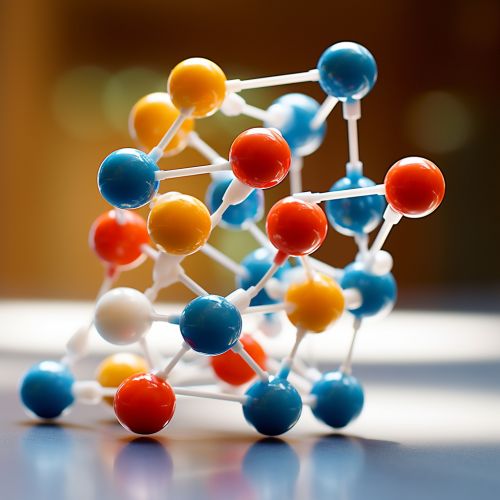Creatine phosphate
Introduction
Creatine phosphate (also known as phosphocreatine) is a naturally occurring organic compound that plays a pivotal role in energy metabolism in muscles and nerve cells. It is a phosphorylated creatine molecule that provides a rapid reserve of high-energy phosphates in skeletal muscle and the brain to recycle adenosine triphosphate, the energy currency of the cell.


Biochemistry of Creatine Phosphate
Creatine phosphate is synthesized in the liver, kidneys, and pancreas from the amino acids arginine, glycine, and methionine. This process involves two enzymatic reactions. In the first step, arginine and glycine are combined to form guanidinoacetate, catalyzed by the enzyme arginine:glycine amidinotransferase (AGAT). In the second step, methionine donates a methyl group to guanidinoacetate, converting it to creatine. This reaction is catalyzed by guanidinoacetate N-methyltransferase (GAMT). Creatine is then transported to muscle cells, where it is phosphorylated to form creatine phosphate, a reaction catalyzed by the enzyme creatine kinase.
Role in Energy Metabolism
Creatine phosphate serves as an immediate reserve for the rapid regeneration of ATP, which is consumed during muscle contraction. When ATP is hydrolyzed to adenosine diphosphate (ADP) and inorganic phosphate (Pi), the energy released is used to power muscle contraction. However, this depletes the ATP stores in the muscle cells. Creatine phosphate comes into play by donating its phosphate group to ADP to regenerate ATP, a reaction catalyzed by creatine kinase. This process is known as the phosphagen system or phosphocreatine system.
Clinical Significance
Creatine phosphate and its related enzymes have clinical significance in various medical conditions and diagnostic procedures. For instance, elevated levels of creatine kinase in the blood can be an indicator of muscle damage, as seen in conditions like myocardial infarction, muscular dystrophy, and rhabdomyolysis. Moreover, defects in the synthesis or metabolism of creatine phosphate can lead to various neuromuscular and cognitive disorders.
Creatine Phosphate in Exercise and Sports Nutrition
In the context of exercise and sports nutrition, creatine phosphate is of particular interest due to its role in energy metabolism. Supplementation with creatine can increase the concentration of creatine phosphate in the muscles, potentially enhancing athletic performance, particularly in high-intensity, short-duration exercises like weightlifting and sprinting.
